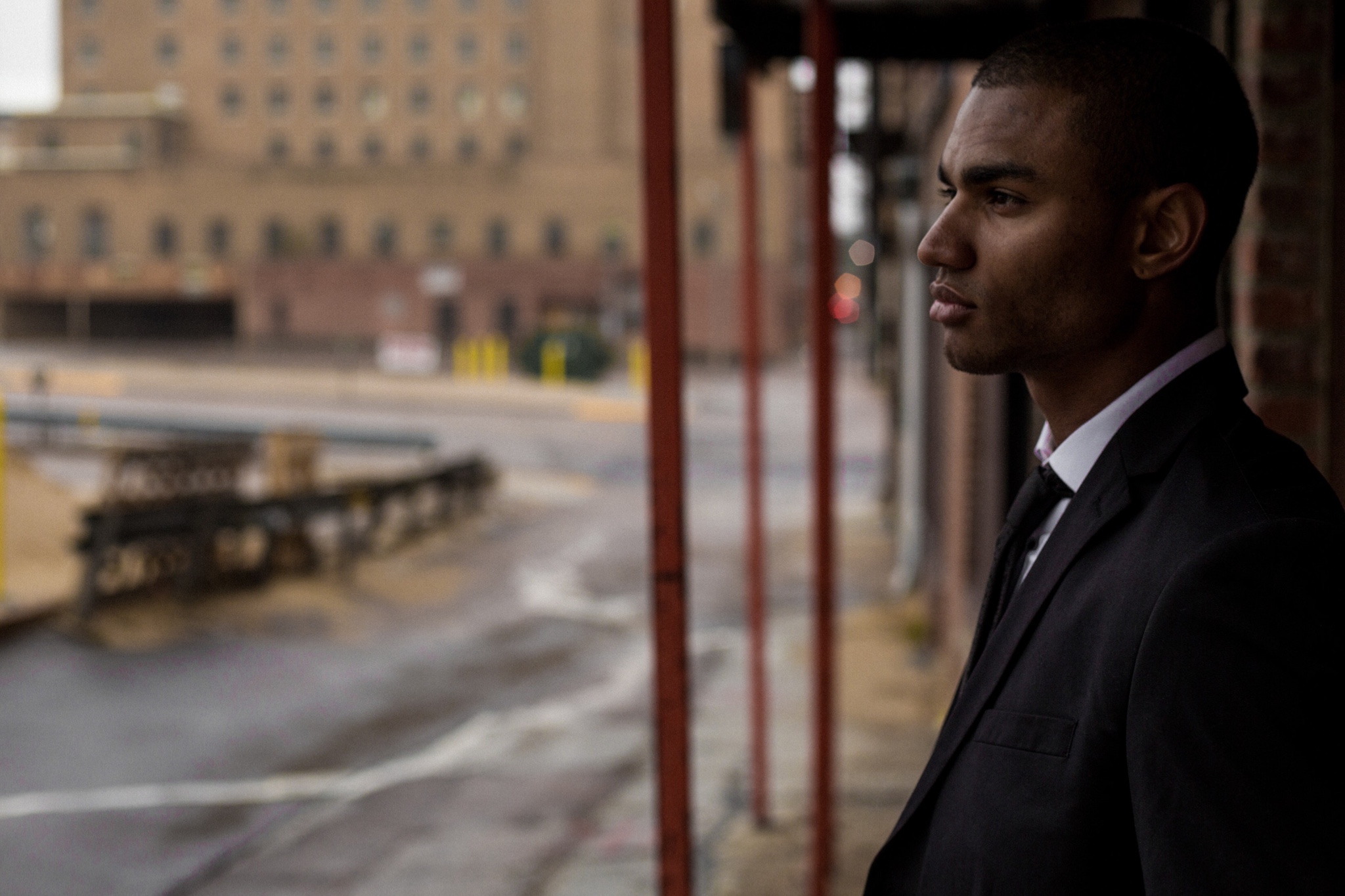I’ve been thinking a lot lately about that popular saying, “Preach the gospel at all times, and when necessary use words.” It gets tossed around frequently and is commonly attributed to St. Francis of Assisi, although there really isn’t solid proof for that citation. Now, I get it. The purpose and intent of the quote is often used in the context of spurring us on to be good neighbors toward others. And that’s great. The problem is, doing good things for other people is not the equivalent of preaching the gospel. Preaching the gospel is an audible proclamation that requires a response (Romans 10:8-10).
We in more conservative theological circles tend to attack this popular phrase as being naive or, even worse, plain stupid. I remember hearing Pastor John MacArthur say at this years T4G conference that he wouldn’t attribute this quote to anyone, let alone St. Francis, because of how stupid it is. Similarly, Pastor RC Sproul Jr. is known for saying, “Preach the gospel at all times, if necessary, rebuke anyone who says ‘if necessary, use words.'”
But I think if we’re honest, for all of our theological correctness about what preaching the gospel is and what it is not, we tend to let this be an excuse to – well – not be a good neighbor. We can get so hung up on having the best apologetic responses and defense of Christianity, so caught up in trying to make sure that we know every word we’ll say to someone about our faith, that we never pull the trigger and actually tell somebody. Or, even worse, we’re so caught up in our “good theology” that what we say to people comes off as cold, indifferent or even mean. That’s probably because it is.
Theological correctness should never be an excuse for neglecting the call to be a good, kind and hospitable neighbor toward others.
Recall some of the faithful Christians who have had the most impact on your life and faith. If you think about it for a second, you’ll realize that the reason they had so much impact on you was not only because of what they said but because of how they said it. You’ll probably remember these individuals as being warm, kind, hospitable, gentle, humble and caring.
What happens when we combine the audible proclamation of the gospel with warm, kind, hospitable, gentle and humble actions? We incarnate Christ himself; we physically represent the truths that we proclaim. See, the gospel will always be offensive; but not you. Christian, you are called to be warm, kind, hospitable and gentle towards others. This fact does not come at the expense of theological accuracy.
I don’t know what this looks like for you, but take time to think about how this dual reality of gospel proclamation and Christ-like character should shape your attitude towards friends and neighbors. Maybe you just need to bake cookies for someone or mow their lawn. Call them when you know they’re having a hard time. Buy their kid a birthday present. Spend time thinking about how you can just be a kind neighbor toward others and, when the time comes, preach the gospel with bold, audible words.
Then one of the twelve, whose name was Judas Iscariot, went to the chief priests 15 and said, “What will you give me if I deliver him over to you?” And they paid him thirty pieces of silver. 16 And from that moment he sought an opportunity to betray him. – Matthew 26:14-16
Then when Judas, his betrayer, saw that Jesus was condemned, he changed his mind and brought back the thirty pieces of silver to the chief priests and the elders, 4 saying, “I have sinned by betraying innocent blood.” They said, “What is that to us? See to it yourself.” 5 And throwing down the pieces of silver into the temple, he departed, and he went and hanged himself. – Matthew 27:3-5
—–
Judas, you fool!
Thirty pieces of silver stood between the life and death of the Son of Man.
A crucified Christ in exchange for thirty pieces of coin.
Thirty pieces of coin offered in exchange for the sinful desires of one man.
Judas, you dog!
How could you betray the King of Kings, the Lord of Lords? The one whom you had personally served for three years? You cast down your coins not because you were grieved by your sin, but because you were grieved by the consequence of your sin. It was too late.
The good news of the resurrected Christ is that it is never too late to throw down your thirty pieces of silver in faith and repentance.
Ben, you fool!
One piece of coin for my greed…
One piece for my lust…
One for my pride…
One for my envy…
One sliver of silver for my self-righteousness…
Who is the real Judas, Iscariot or the one who follows after him?
Ben, you dog!
Every day that I wake up I am faced with a choice: hold on to my thirty pieces of silver, or cast them down before the Lord.
My thirty pieces of precious sin stand between life in or death at the hands of the Son of Man.
Because a crucified Christ has already been exchanged for my thirty pieces of coin.
Thirty pieces of coin cast down in exchange for the life of One Man.
Will you cast down your silver, or clutch it tightly?
—–
And you, who were dead in your trespasses and the uncircumcision of your flesh, God made alive together with him, having forgiven us all our trespasses, 14 by canceling the record of debt that stood against us with its legal demands. This he set aside, nailing it to the cross. – Colossians 2:13-14
But it is very striking that in the New Testament the terms for calling, when used specifically with reference to salvation, are most uniformly applied, not to the universal call of the gospel, but to the call that ushers men into a state of salvation and is therefore effectual. – John Murray, Redemption Accomplished and Applied
God is faithful, by whom you were called into the fellowship of his Son, Jesus Christ our Lord. – 1 Corinthians 1:9
—–
Jill and Eustace didn’t know how to get Narnia. But they figured calling out to Aslan – whom Jill had not yet met – couldn’t hurt.
Sure enough, it worked.
And that’s when Jill first met Aslan…
—–
Just on this side of the stream lay the lion.
It lay with its head raised and its two forepaws out in front of it, like the lions in Trafalgar Square. She knew at once that it had seen her, for its eyes looked straight into hers for a moment and then turned away – as if it knew her quite well and didn’t think much of her.
“If I run away, it’ll be after me in a moment,” thought Jill. “And if I go on, I shall run straight into its mouth.” Anyway, she couldn’t have moved if she had tried, and she couldn’t take her eyes off it. How long this lasted, she could not be sure; it seemed like hours. And the thirst became so bad that she almost felt she would not mind being eaten by the lion if only she could be sure of getting a mouthful of water first.
“If you’re thirsty, you may drink.”
They were the first words she had hears since Scrubb (Eustace) had spoken to her on the edge of the cliff. For a second she stared here and there, wondering who had spoken. Then the voice said again, “If you are thirsty, come and drink,” and of course she remembered what Scrubb had said about animals talking in that other world, and realized that it was the lion speaking. Anyways, she had seen its lips move this time, and the voice was not like a man’s. It was deeper, wilder, and stronger; a sort of heavy, golden voice. It did not make her any less frightened than she had been before, but it made her frightened in rather a different way.
“Are you not thirsty?” said the Lion.
“I’m dying of thirst,” said Jill.
“Then drink,” said the Lion.
“May I – could I – would you mind going away while I do?” said Jill.
The Lion answered this only by a look and a very low growl. And as Jill gazed at its motionless bulk, she realized that she might as well have asked the whole mountain to move aside for her convenience.
The delicious rippling noise of the stream was driving her nearly frantic.
“Will you promise not to – do anything to me, if I do come?” said Jill.
“I make no promise,” said the Lion.
Jill was so thirsty now that, without noticing it, she had come a step closer.
“Do you eat girls?” she said.
“I have swallowed up girls and boys, women and men, kings and emperors, cities and realms,” said the Lion. It didn’t say this as if it were boasting, nor as if it were sorry, not as if it were angry. It just said it.
“I daren’t come and drink,” said Jill.
“Then you will die of thirst,” said the Lion.
“Oh dear!” said Jill, coming another step nearer. “I suppose I must go and look for another stream then.”
“There is no other stream,” said the Lion.
It never occurred to Jill to disbelieve the Lion – no one who had seen his stern face could do that – and her mind suddenly made itself up. It was the worst thing she had ever had to do, but she went forward to the stream, knelt down, and began scooping up water in her hand. It was the coldest, most refreshing water she had ever tasted. You didn’t need to drink much of it, for it quenched your thirst at once. Before she tasted it she had been intending to make a dash away from the Lion the moment she had finished. Now, she realized that this would be on the whole the most dangerous thing of all. She got up and stood there with her lips still wet from drinking.
“Come here,” said the Lion. And she had to. She was almost between its front paws now, looking straight into its face. But she couldn’t stand that for long; she dropped her eyes.
“…the Boy is safe. I have blown him to Narnia. But your task will be the harder because of what you have done.”
“Please, what task, Sir?” said Jill.
“The task for which I called you and him here out of your own world.”
This puzzled Jill very much. “It’s mistaking me for someone else,” she thought. She didn’t dare to tell the Lion this, though she felt things would get into a dreadful muddle unless she did.
“Speak your thought, Human Child,” said the Lion.
“I was wondering – I mean – could there be some mistake? Because nobody called me and Scrubb, you know. It was we who asked to come here. Scrubb said we were to call to – to Somebody – it was a name I wouldn’t know – and perhaps the Somebody would let us in. And we did, and then we found the door open.”
“You would not have called to me unless I had been calling to you,” said the Lion.
—–
And we know that for those who love God all things work together for good, for those who are called according to his purpose. 29 For those whom he foreknew he also predestined to be conformed to the image of his Son, in order that he might be the firstborn among many brothers. 30 And those whom he predestined he also called, and those whom he called he also justified, and those whom he justified he also glorified.
Romans 8:28–30
My family and I moved from our home in South Dakota in 1997 and traveled halfway across the country to Northern Virginia. I had grown up in the same small town there for almost 10 years, so this was an exciting but equally hard move for me. One of the most difficult things for me at the time was leaving my grandparents who I was very close to and facing the fact that I wouldn’t be able to see them whenever I wanted to anymore.
Both of my parents worked until late afternoon/early evening and faced long commutes, so for two years I attended an after-school care program at my elementary school. Since staying late at this program was normative, it was always a special treat when one of my parents got off work early and came to pick me up, because I knew that meant I would get to go home and have extra time watching TV or whatever it was I did back then.
I’ll never forget the day my father came to pick me up early from school one day. I was so excited to go home and have some extra fun. What I didn’t know was that this day was not going to be fun at all, but instead was going to be my first experience with death and mourning.
I remember walking in the door and seeing my mom sitting in the kitchen crying. I asked her what was wrong, and she gently put her hand on my shoulder and said, “Grandma went to sleep last night, and never woke up.”
Now, my little 10 year old mind had never comprehended death before – but I knew what it was. I instantly knew that this meant Grandma had passed away. After crying with my parents for a short time, I remember going up to my room and crying/thinking in solitude. And it was during that time alone that somehow my little brain genuinely convinced myself that what my mom actually meant was that Grandma had simply gone into a deep coma, that she didn’t really die. And so that was how I interpreted life for the next few days.
The night before I left for the funeral (somehow I didn’t realize that was what we were leaving for), my after-school counselor said to me, “Ben, I’m really sorry to hear about your Grandma’s passing.” Passing? I thought he was crazy! After all, Grandma hadn’t passed away, she was just asleep. So I ignorantly refuted him, “Dead!? No, not dead. She’s just in a coma. If she was really dead, I’d be a disaster!”
My father came to pick me up soon after, and I remember saying to him in the hallway at the school as we left, “Dad, isn’t it crazy that my counselor thought Grandma was dead? How crazy is that, right?”
Then I heard the words that my mind had been trying to shelter me from for three days.
No Ben. Grandma really did die.
I lost it. I broke down in the hallway and cried all the way home.
Now, you can chalk up my experience to the mental capacity of a 10-year-old and my inability at the time to process death. And I’m sure this is partially true. But I think my experience reveals something deeper about the reality of death: nobody ever gets used to it. Talk to anyone who deals with death on a regular basis (such as a soldier or a doctor/nurse) and they’ll tell you that nobody ever becomes adjusted to death, and if they do its because they’ve become numb to some other part of life as a coping mechanism.
See here’s the thing about death – it was never meant to be something we get used to because it was never supposed to be something we deal with. Death is an anomaly in creation; it shouldn’t exist.
But death does exist. Through our conspiracy and responsibility in the act of turning from God, we’ve brought the punishment of death, disease and decay upon ourselves.
For all the emphasis we have on justification and forgiveness of sins in the Christian life, I think we often forget the fact that through the work of Christ God is restoring all things to himself. He is making all things new. Read what Paul says in the first epistle to the Thessalonians:
But we do not want you to be uninformed, brothers, about those who are asleep, that you may not grieve as others do who have no hope. 14 For since we believe that Jesus died and rose again, even so, through Jesus, God will bring with him those who have fallen asleep. (1 Thessalonians 4:13-14)
We need not grieve as those without faith in Christ would grieve. Because Jesus has overcome death and the grave, through faith we too share in his victory. Like Christ, we will rise and some day be glorified, being made like him as he makes all things new.
Christian, don’t forget that in the gospel we have much more than our forgiveness of sins – although certainly not less. Through the gospel we have all of Christ; his righteousness, his sonship, and his victory – even over death.









